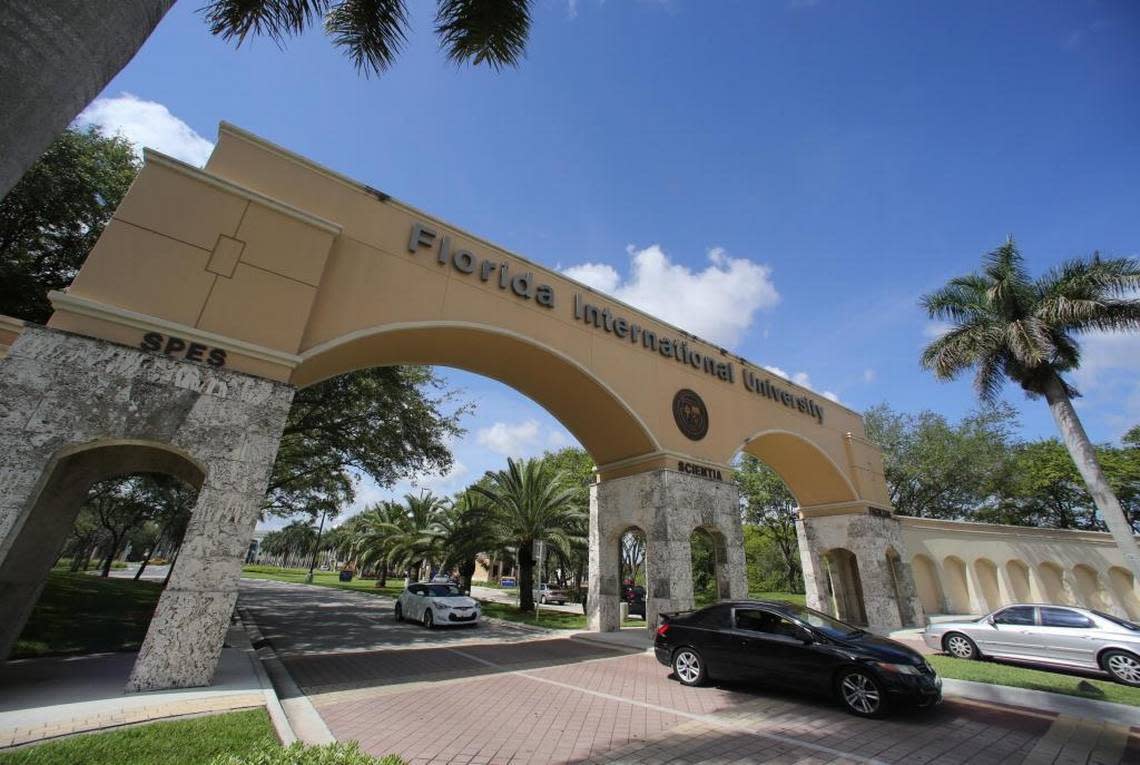For the first time ever, FIU law school surpasses UM’s in national rankings

For the first time in its 21-year history, the law school at Florida International University was ranked third in the state this year, besting the private University of Miami School of Law, founded in the 1920s and whose annual tuition is nearly three times higher than what an in-state law student pays at the state-funded FIU.
“Oh my God, we are so excited!” said FIU President Kenneth Jessell, crediting students, faculty and staff. “It’s definitely a team effort. And it’s an effort that’s been in place for many years.”
The Levin College of Law at the University of Florida held the top ranking in the state, and the College of Law at Florida State University came in second. UM fell to fourth.
That’s according to the rankings of U.S. News & World Report, a media company that has been annually ranking higher education institutions in different categories since the early 1980s and released its graduate school rankings Thursday. The lower the number in each rankings list, the better — No. 1 is tops.
This year, U.S. News changed its methodology for the rankings after backlash from prominent universities like Yale and Harvard. Two of the tweaks — increased weight given to employment 10 months after graduation and increased weight given to the law schools’ bar passage rates — benefited FIU, which had been prioritizing those student outcomes.
FIU’s rate of students passing the Florida Bar exam on their first attempt has consistently ranked first among all Florida law schools in recent years.
“It’s wonderful that the U.S. News rankings are now more aligned with what we value at FIU Law,” said FIU Law Dean Antony Page.
FIU law overpowers UM
FIU, the largest public university in Miami-Dade County with its main campus near Sweetwater, shot up in the U.S. News rankings from No. 98 last year to No. 60. The 38-spot leap was the second-highest ranking leap of any law school in the country this year, according to an FIU press release Thursday.
The law school at UM, the largest private university in the county with a main campus in Coral Gables, rose two spots from No. 73 in 2022 to No. 71 this year.
Asked how he felt about passing UM, Jessell said: “I don’t want to focus on passing any law school. I just want to focus on how well we’re doing for our students and how well they’re performing.”
Page, the FIU law school dean, said: “We are fortunate in Miami to have great options for legal education.”
The UM communications team didn’t respond to multiple requests for comment Thursday from the Herald.
The cost of tuition varies considerably between the two law schools. At the University of Miami, annual tuition and fees for the 2022-23 school year was $59,562 at the law school, according to UM’s website. (Room and board are separate.) At FIU, annual tuition and fees for the same period were $21,806 for an in-state day student at the law school, and $36,049 for an out-of-state daytime law student. (Tuition for law-school students who attend at night is lower.)
The Levin College of Law at the University of Florida in Gainesville, first in the state, tied at No. 22 nationally. The College of Law at Florida State University in Tallahassee landed second in the state and tied for No. 56 in the country.
How the rankings changed this year
Students often use the rankings when deciding where to attend. But Page, FIU’s law dean, advised students to consider other data before choosing a law school, not only the rankings. The cost of tuition and whether the school feels like a “good fit” also matters, he said.
For law schools, U.S. News uses 10 factors with different percentage weights assigned to each, including how many students pass the state bar exam; expert opinions from academics, lawyers and judges; and the student-faculty ratio. For detailed information, click here.
Many educators and administrators criticized the U.S. News process last year and boycotted it, including Yale Law Dean Heather Gerken, who called the rankings “flawed.” U.S. News had “conversations with more than 100 deans and representatives of law schools,” and modified its metrics and weights in January as a result.
Before, the rankings gave more weight to schools whose students came from wealthier socioeconomic backgrounds, as they valued GPA and LSAT scores, which could be helped by private expensive tutors, as well as per-student expenditure and student debt levels. (Wealthier students, in general, don’t accrue significant student debt.)
“I’m optimistic that there will be additional adjustments to the rankings and the weights they use for the metrics,” Jessell said. “We need to focus on what students can really do and how they can perform, and how institutions can help them maximize that.”

